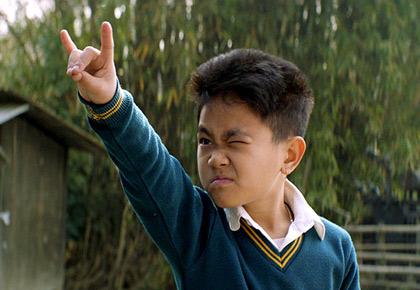 | « Back to article | Print this article |
'This story has been always there since my childhood because of missing people.'
'I remember a family member who disappeared and I kept wondering what happened to him.'
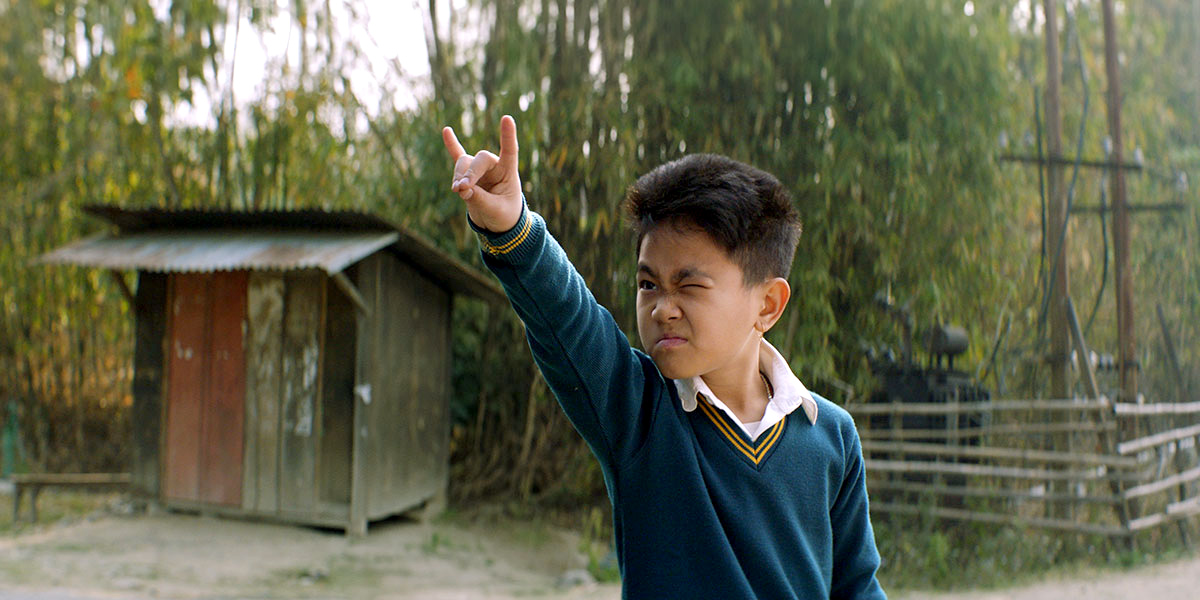
Manipuri film-maker Lakshmipriya Devi has worked as an assistant director on many Bollywood projects including some of Excel Entertainment films like Lakshya, Luck by Chance, Talaash, and last year's limited series,Dahaad.
Before she made her first feature film Boong, she had also served as an AD to Raju Hirani (PK) and Mira Nair (A Suitable Boy).
Her association with Excel led to Farhan Akhtar and Ritesh Sidhwani produce her Manipuri film. Boong just had its world premiere at the Toronto International Film Festival.
Boong is a sweet story about a young boy raised by a single mother. The mischievous boy, played by a charming first-time actor Gugun Kipgen, tries everything possible to find his father. Every year he hopes his father will return for Holi and reunite with his mother.
Seeped in rich Manipuri culture, Boong was shot before the state was ravaged by the current conflict.
Devi adds lovely Manipuri touches to the film from the daily lives of school kids to folk music, dances, including a local version of Madonna's hit song, Like a Virgin. There is also a beautiful homage to the trans culture in Manipuri.
"When my father passed away, I spent quite a bit of time in Manipur, and there were so many things that came back to me. Initially, I wrote not to make a film or anything. I just wanted it out of my system," Lakshmipriya Devi tells Aseem Chhabra before heading to Toronto for her film's world premiere.
Lakshmipriya, I found the film sweet and very well done. I didn't know a lot about how the outsiders were treated in Manipur prior to the riots of last year and the border situation between India and Myanmar. I am glad you end with a statement about the conflict of Manipur.
But was there any tension simmering while the film was being shot?
I was actually not aware but there was a bandh, a curfew that happened during our shoot. That was in Moreh (a border town with Myanmar which figures prominently in the film), one of the first places where the tensions started.
The violence started because of reservations. And there was a curfew.
It was on the day we were filming the two boys walking towards a post office. There was nobody on the streets.
We saw a wedding taking place and we requested the wedding party to join as background actors. But they responded 'No, we have a wedding to finish.'
Bandhs and curfews are so normal in Manipur. I never thought that it was going to result in such a long drawn out conflict.
You have worked with Excel for a while and also other Bollywood production companies. You obviously know Ritesh and Farhan, but how did you convince them to produce your film?
Firstly, I just wanted to write. But when this story happened, it became so close to my heart, I felt I had to direct it.
Working as an AD is very different from directing. As an AD, you only know how to organise things and make them happen on time.
So initially, I felt I was not equipped to do it. But I also felt this was my one chance.
Ritesh, Farhan and the others I narrated the story to, everybody said let's do it.
The thing is every time I was writing, it was always a Manipuri story. I think it had to do with some things I wanted to deal with. It was almost like writing a diary.

This must be the first small budget film that Ritesh and Farhan have produced. Have they produced anything this indie from a different region?
I think this is their first indie, and I hope they do a lot more, especially films in Manipur. Our film's budget was even below the standard indie.
So they seemed open to it? Because box office is a big aim for a company like Excel. Large production houses look for box office before anything else.
It is important to note that Excel, as a company, is always evolving.
I think it was one of the first companies to get into OTT. They wanted to tell the story as much as I did, and were open to it.
They are very experimental.
There are stories about how they went to shoot Dil Chahata Hai, without any film-making background. So I think the boys are quite risk takers.
You said you wanted to tell your own Manipuri story. But how exactly did you come on to this story about a boy and his mother, and the father who is missing?
I think this story has been always there since my childhood because of missing people.
People who disappeared.
I remember a family member who disappeared and I kept wondering what happened to him.
Also, second marriages were common in Manipur.
All these ideas are literally collections from my childhood.
It also came from a place of pain and anger.
I was in a hostel, and would only go home for my vacations.
When my father passed away, I spent quite a bit of time in Manipur, and there were so many things that came back to me. Initially, I wrote not to make a film or anything. I just wanted it out of my system.
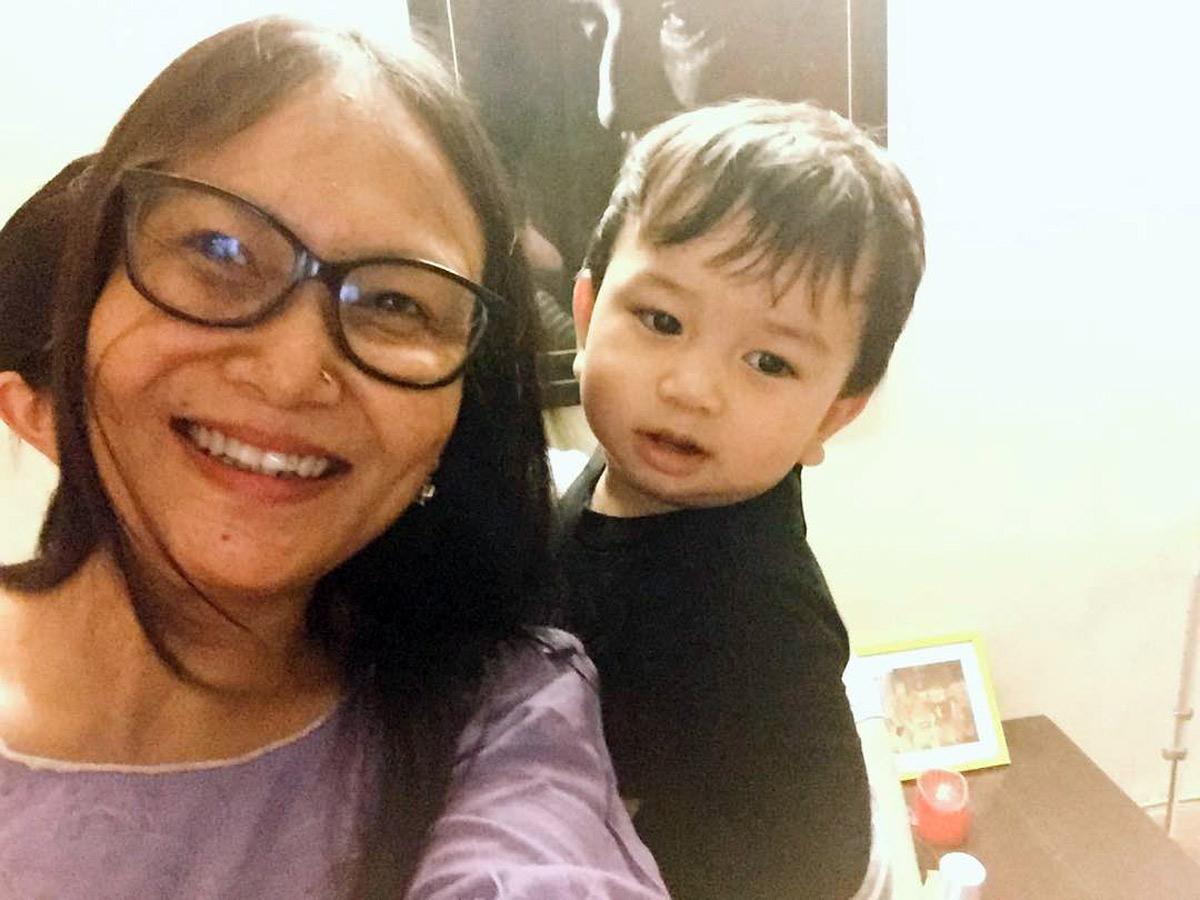
I am sorry for prying into your personal life, but did this happen in your family where someone was married twice?
My grandfather had two wives. In a sense, it was actually a lovely culture. The two wives would call each other sisters.
And it was not considered illegal?
It is illegal, obviously. But not before we became part of India. I took bits and pieces of my memory and put it in today's context.
I loved your casting. Are they all non-actors? The mother looks like a professional actress.
The mother is an actress. There were four or five people from a film or theatre background. But the boys... in fact, all the kids were new.
That move that Boong does with the sling, the gulale. Is that something you taught him or he was doing it himself?
I wanted him to do martial arts steps, which are very common.
Those moves were used a lot when the Burmese invaded Manipur. But you can't master it in a day.
So we had a choreographer who made the kids loosen their body. He came up with a free movement.
It was my attempt to pay tribute to Manipur, including the defunct cinema halls, where I shot some of the performances.
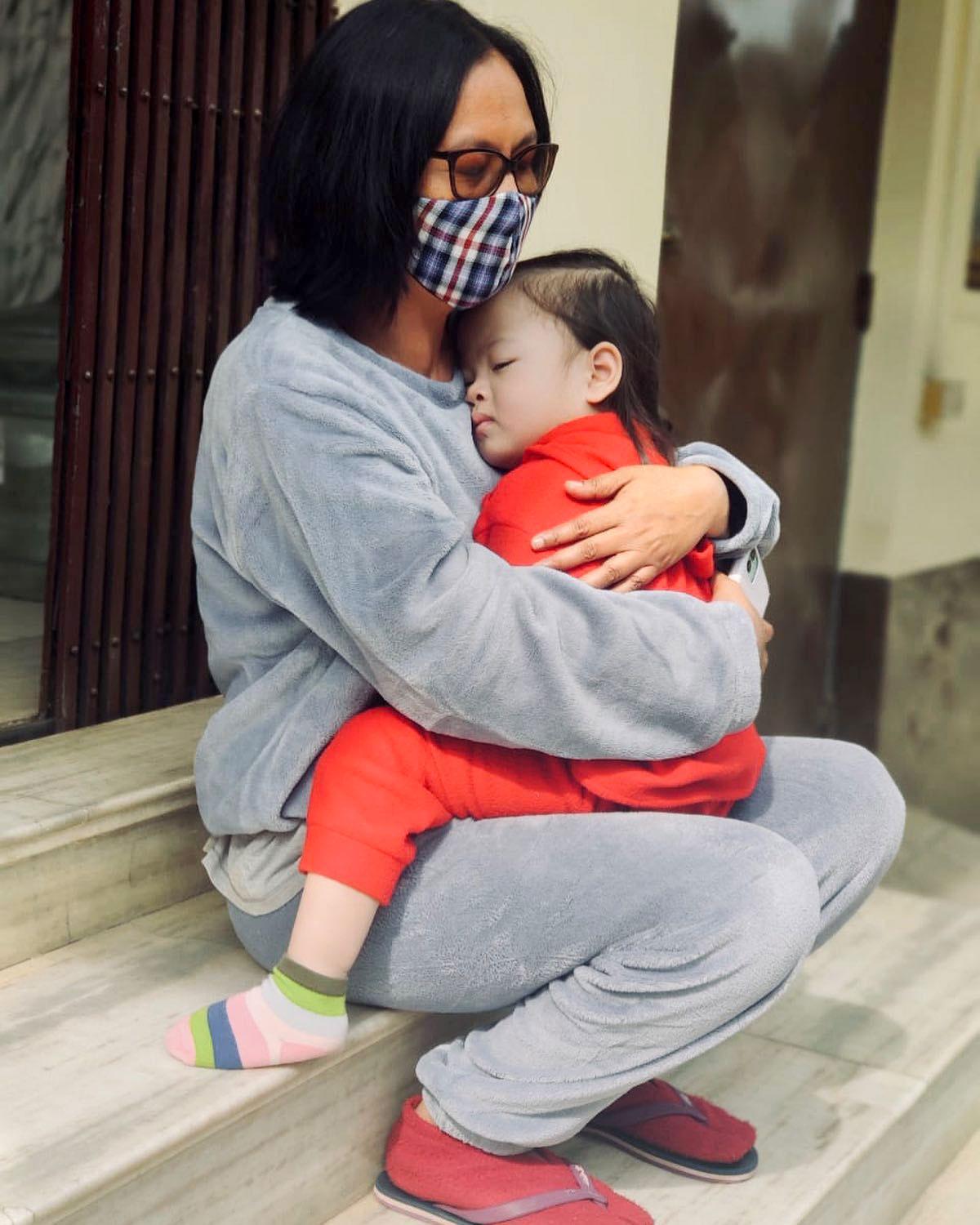
Do you have performances with men in drag and trans people in Manipur?
It came from the shaman culture.
We have a festival called Lairaba. It is a celebration of the gods and men dress up as women.
We have a strong trans culture in Manipur.
The amazing thing about the community is that they live with their families.
Most of them take the name or the surname of the locality they live in. The locality also helps them come to terms with their identity.
It was a big influence on me because when I was small, and even today, they are such a proud community.
That's amazing. There are so many lovely moments with the trans dancers. And all the references to Madonna. Did you have to get rights for Madonna's Like a Virgin song?
Yes, for the poster and the song. I am trying for her to watch it and see a Manipuri version of the song.
And that performance at the end, with those dancers with the drums. Did it exist earlier or did you create it for the film?
No, we created it for the film.
The dances and the drums are prevalent in every ritual, whether it's a death ceremony or a wedding.
I wanted to incorporate that sound, not just that of the drums, but another instrument called pena.
I can be anywhere in the world, but I think of the sound and it reminds me of Manipur.
I love when the principal asks Boong to recite the Father's Prayer, and he starts to speak out the lyrics of Like a Virgin. The humour was wonderful and you bring up Boong's association with Madonna. What are the plans with this film after Toronto?
Well, I definitely want to show it in Manipur.
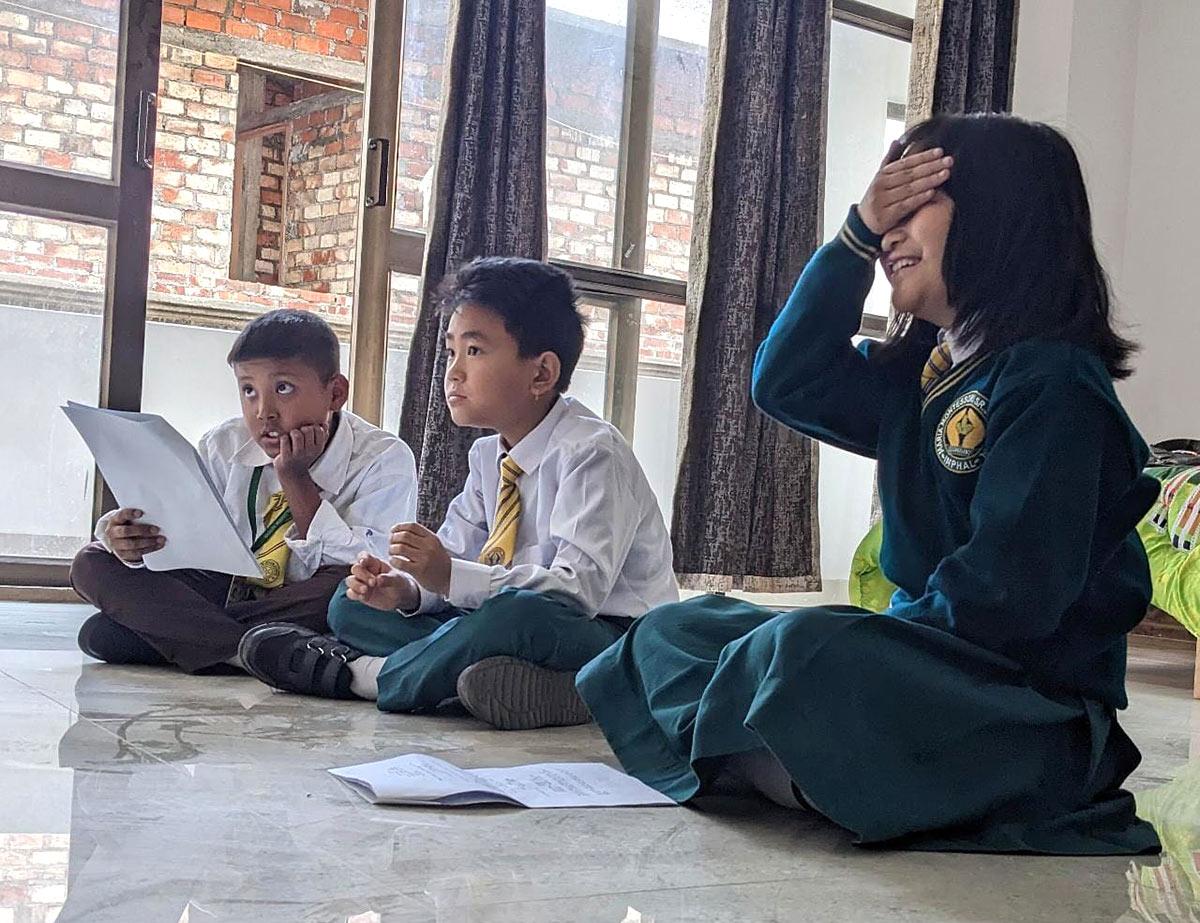
You have movie theatres in Manipur?
Now there are, but they don't play Hindi films.
We have two theatres which are functioning.
Otherwise, all the theatres were shut down. Some have become churches.
Was this even before the current unrest?
In 2000, there was an official ban on Hindi films and the Hindi language. These were demands of separatist groups.
But are there video parlours as you show in the film?
Not video parlours. There was an old lady near my house who used to sell sandals and other stuff smuggled from Myanmar and Thailand.
She would go to Guwahati and collect new films and rent out DVDs. I know she got caught.
It really fascinated me.
But what films are shown in the two theatres? Can you watch Assamese films?
Mainly English films. They just started in December 2022 and now we have had problems since May 2023. I doubt if those theatres are showing films.
The scene where one of the trans performers is singing was shot in an abandoned theatre, once called Roop Mahal Theatre and before that Imphal Talkies.
I was so happy that was one intact piece.
The upper stall has seats from a Japanese Dakota plane, which was shot down during World War II. It was like filming inside history.
